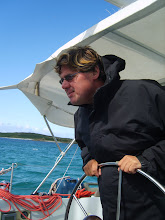The Norbert Bolz talk was quite enlightening. One of the key concepts I take from it is the knowledge management paradigm. If you think the idea of attention management through to its extremes, the answer to our questions is not knowledge management.
The reason I would like to elaborate on this conceptual problem, is the nature of knowledge itself. If you look at the way knowledge is created, this used to go through a overseeable body of information distribution, mainly governed through, though not by, university staff and its affiliates. This meant that to become knowledgeable about a subject, one had to read through a published aggregate of texts.
To become a true expert in a field, reading wasn't enough, obviously. Discussion, teaching and writing are also useful. But these are activities typically performed within the university context. So to become a scholar was to become an expert. In some fields of expertise, it still is. But these are diminishing in number and the level of expertise to be gained is also dropping.
If we look at knowledge now, this is quite a different beast. The speed with which it is created, is up considerably. The nature is becoming more diverse. How do you grab, fossilize, or control a forum discussion? If there are 15 replies, reading still does the trick. But what if there are 275 replies to a forum topic? Or 275 thousand? What about a chat session where the value of the Q&A can be limited or universally profound? How can we value the knowledge available in our online and offline universe?
So knowledge management, a typical controlled activity, is in a conundrum.
I would love to be able to say or write encouraging remarks such as "technology will save us" or "we'll figure out a way such as we always have" but I think this is the wrong answer to the wrong question.
The question no longer is "How can we manage the available knowledge" but rather "How can we distribute the knowledge to use it collectively?".
The problem we're faced with is no longer management but availability. How do we make knowledge into something that is available to those of us who are looking for insight? And how do we share those insights to make them applicable to others?
I have no answers to these questions, but I'm hoping others will contribute to refine the questions to aid looking for answers.
4 Dec 2008
The answer is not knowledge management
Subscribe to:
Post Comments (Atom)

No comments:
Post a Comment